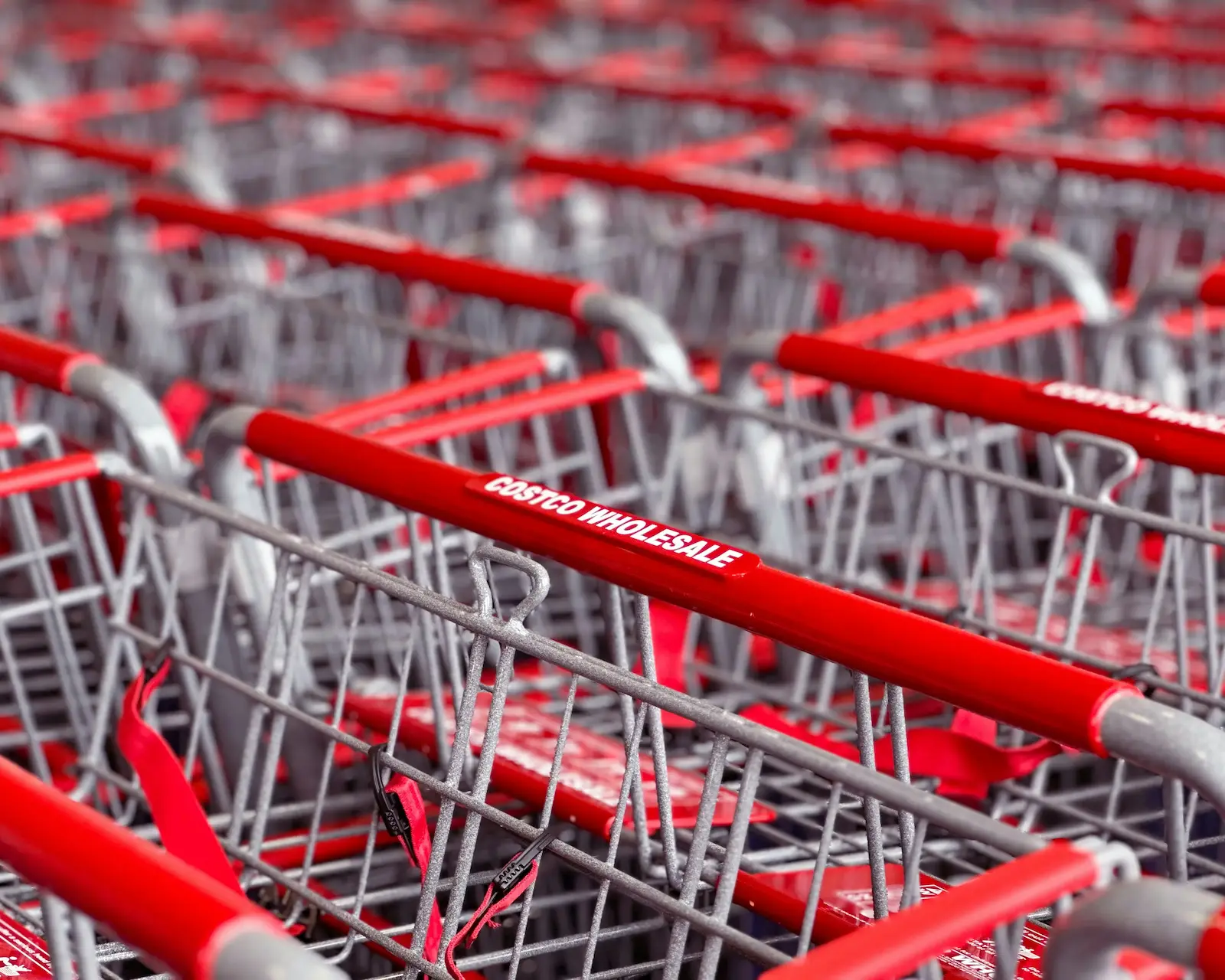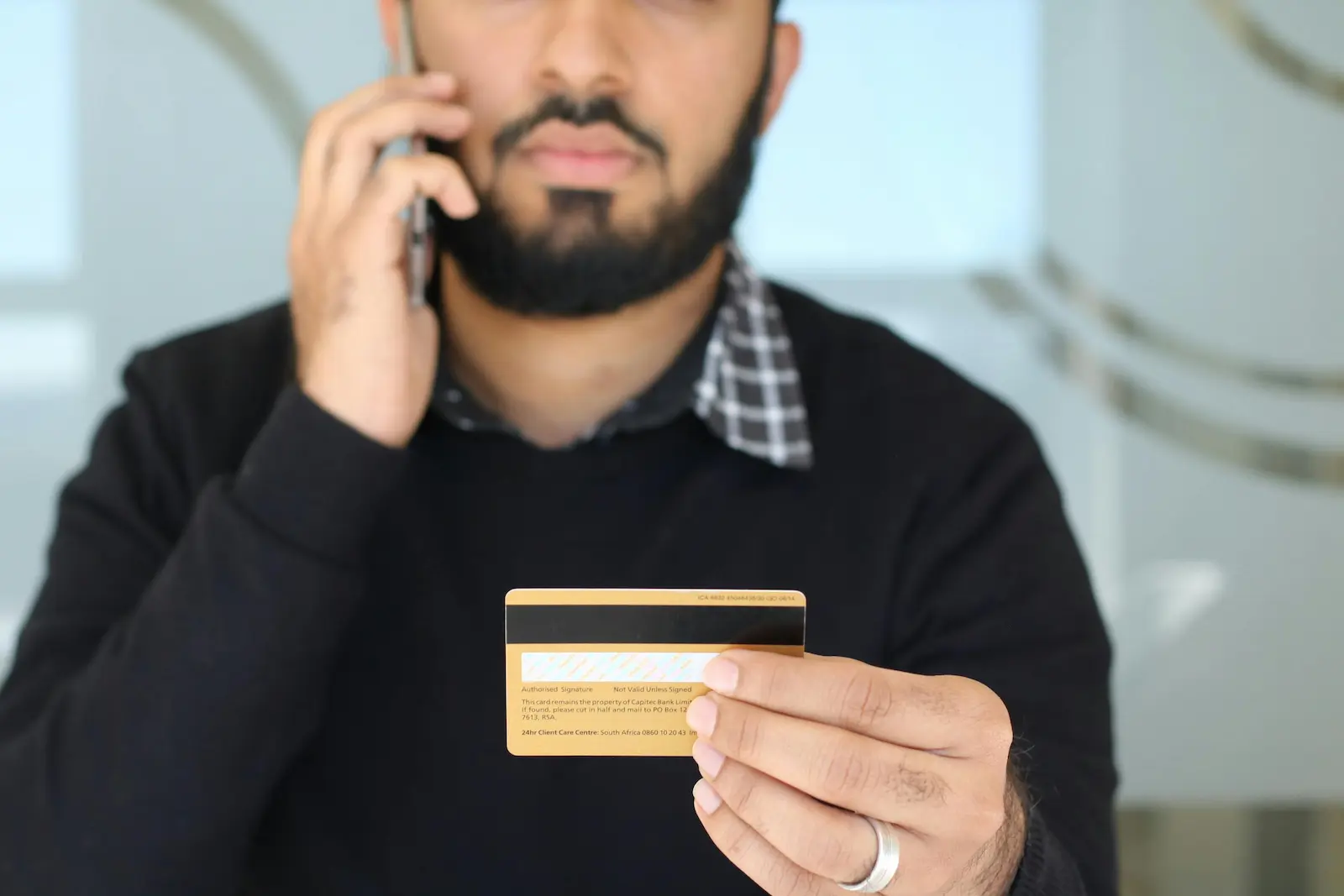
Kudos has partnered with CardRatings and Red Ventures for our coverage of credit card products. Kudos, CardRatings, and Red Ventures may receive a commission from card issuers. Kudos may receive commission from card issuers. Some of the card offers that appear on Kudos are from advertisers and may impact how and where card products appear on the site. Kudos tries to include as many card companies and offers as we are aware of, including offers from issuers that don't pay us, but we may not cover all card companies or all available card offers. You don't have to use our links, but we're grateful when you do!
Are Debit Cards Protected From Fraud? Here's What You Need to Know
July 1, 2025


Debit cards do offer fraud protection, but the level of protection isn’t as strong as what credit cards provide. In fact, whether you lose money largely depends on how fast you report the fraud. Below, we’ll break down exactly what protections debit cards have, how they compare to credit cards, and steps you can take to safeguard your hard-earned money.
What Fraud Protection Do Debit Cards Have?
Debit cards come with certain fraud safeguards under federal law. In the U.S., the key law is the Electronic Fund Transfer Act (EFTA), which limits your liability for unauthorized debit card transactions – but the limits vary by timing:
- Report within 2 days: You’re liable for at most $50 of unauthorized charges.
- Report after 2 days but before 60 days: You could be on the hook for up to $500.
- Report after 60 days: No limit – you might be responsible for all money stolen from your account.
In other words, acting fast is crucial. If you realize your debit card or info is stolen, notify your bank immediately. Many banks have 24/7 fraud hotlines for this reason.
Good news: Most major banks and card networks offer zero-liability policies on debit cards as an added protection. For example, Visa and Mastercard typically promise you won’t pay for unauthorized charges if you report them promptly. This means if a thief runs up charges on your debit card, the bank should refund you – but you still must catch it and report it in time.
Example: If someone steals your debit card and spends $1,000, and you notify the bank within 48 hours, you’ll get all but at most $50 back. Wait a week, though, and you could lose $500. If two months pass before you notice, you could lose the full $1,000 or more, since after 60 days there’s no automatic protection.
Another catch: Even with $0 liability promises, your bank account money is gone until the bank investigates. Unlike a credit card (where fraudulent charges don’t take your cash), a fraudulent debit transaction pulls funds from your checking account. You might be out those funds temporarily – possibly for several days or weeks – while the bank reviews your claim. This can be a serious inconvenience if you needed that money to pay bills.
Debit Cards vs. Credit Cards: Which Protects You More?
It may surprise some, but credit cards are generally safer than debit cards when it comes to fraud protection. Credit cards have stronger legal protections under the Fair Credit Billing Act (FCBA):
- With a credit card, your maximum liability for unauthorized use is $50, period. And many credit card issuers waive that completely, meaning $0 liability on fraud.
- There’s no 2-day or 60-day rule for credit cards – even if you report fraud late, by law you can’t be charged over $50 (and again, most likely $0).
So while debit cards can keep you safe if you report theft quickly, credit cards give you broader protection and peace of mind. You’re never on the hook for more than $50 (most likely nothing), and crucially, it’s the bank’s money at risk, not yours. With a credit card, fraudulent charges don’t drain your personal account – you can dispute the charge before paying your bill.
Because of this, many experts recommend using credit cards for most purchases and reserving your debit card mainly for ATM withdrawals or when absolutely necessary. As personal finance site U.S. News put it, a smart fraud-protection strategy is to use debit cards only when you need cash, and use credit cards for day-to-day spending.
Of course, not everyone likes credit cards, and debit is convenient for sticking to a budget. But if you do use debit, it’s vital to be vigilant. Let’s look at how you can protect yourself if you prefer swiping that debit card.
Add the free Kudos extension to your browser and it will automatically recommend the safest, most rewarding card at checkout. It’s like having a fraud-savvy friend who also knows how to get you more cash back or points on every purchase!
How to Protect Your Debit Card from Fraud
While no one is immune to debit card fraud, you can take steps to greatly reduce your risk and limit potential losses:
Keep your card and PIN secure
Treat your debit card like cash. Don’t share your PIN with anyone or write it down. When entering your PIN at an ATM or store, cover the keypad to block prying eyes or hidden cameras.
Be cautious at ATMs and pumps
Use ATMs in well-lit, secure locations. Before inserting your card, inspect the card reader for anything suspicious – wiggle it to check for skimmers.
Watch for skimming devices
Similarly, at gas pumps or payment kiosks, look for loose parts or tape – signs of a card skimmer. If something looks off, pay inside or use a different machine.
Use secure websites and Wi-Fi
When shopping online with a debit card, make sure the site is secure (look for “https://” and a lock icon). Avoid entering card details on public Wi-Fi. Stick to reputable merchants to lessen the chance of breaches.
Monitor your account regularly
Since money leaves your account immediately with a debit card, it’s easier to catch fraud quickly. Take advantage of your bank’s mobile app or online banking to check transactions frequently. Better yet, set up account alerts – many banks can text or email you for transactions over a certain amount or whenever your card is used. Early detection = less liability.
Enable multifactor authentication
If your bank offers it, turn on two-factor or multifactor authentication for your online account. This makes it harder for scammers to access your account or card info through hacking.
Beware of phishing scams
Be skeptical of unsolicited calls, texts, or emails asking for your card number or bank login. Banks will never ask for your PIN or full password over the phone. If you get a suspicious message, contact your bank using the number on the back of your card to verify.
Turn off overdraft if possible
Some banks let you overdraft your account with debit transactions (incurring a fee). Disabling overdraft can limit how much a fraudster can charge if they do get your info – they can only spend what’s in the account.
By following these practices, you’re making yourself a harder target. Even if fraud occurs, you’ll catch it quickly and know what to do next.
What To Do If Fraud Happens
Despite precautions, debit card fraud can still happen to the best of us. If you notice unauthorized charges or your card goes missing, here’s what to do right away:
- Contact your bank immediately. Most debit cards have a 24/7 fraud hotline (check the number on the back of your card). Report that your card was stolen or that fraudulent transactions appeared. They will freeze the card to prevent further usewtop.com. Quick reporting is key to limiting your liability to $50 or $500 at most.
- Follow up with written notice. After the call, it’s often recommended to send a written notice or secure message to your bank detailing the fraudulent charges. This creates a paper trail of you reporting the issue.
- Check your accounts and statements. Review recent transactions and note any other strange activity. Also, if someone physically stole your card, double-check nothing else (like checks or account info) was taken.
- File a police report if needed. Especially if a large amount was stolen or your identity was compromised, filing a police report can help with any investigations. Some banks may ask for a police report as well.
- Monitor your account in the following days. Banks typically investigate debit fraud claims and must resolve them within a certain timeframe (often 10 business days for provisional credit, and up to 45 days for a full investigation under EFTA rules). During this time, keep an eye out for any new unauthorized transactions.
Finally, if your bank doesn’t handle the fraud claim properly (for instance, they refuse to refund an obvious unauthorized charge), remember that you can escalate the issue. In the U.S., you can file a complaint with the Consumer Financial Protection Bureau (CFPB) if the bank isn’t following the law.
.webp)
Put Your Cards to Work
Managing multiple cards can actually boost your security and rewards. Kudos is your ultimate financial companion, helping you effortlessly manage all your credit cards, monitor your credit score, and maximize rewards – all in one convenient platform. By using credit cards for daily spending (with Kudos guiding you to the best card for each purchase) and your debit card only when needed, you get the best of both worlds: fraud protection and rich rewards.
FAQ: Debit Card Fraud Protection
Do debit cards offer fraud protection like credit cards?
Yes. Debit cards do come with fraud protection under federal law – specifically, the Electronic Fund Transfer Act limits your liability on fraudulent charges to $50 if you report within 2 days. Many banks also have $0 liability policies. However, the protections are not as automatic or broad as credit card protections, so timing and vigilance matter more with debit cards.
Will my bank refund money stolen from my debit card?
Yes, in most cases banks will refund unauthorized transactions if you report the fraud promptly. By law, once you report an unauthorized debit transaction, the bank must investigate and typically provide provisional credit within 10 business days. Most major banks also adhere to Visa/Mastercard’s zero-liability rules, meaning you should get all your stolen money back. Just remember, the money is out of your account during the investigation, so act fast to minimize loss.
Are credit cards safer to use than debit cards?
Yes. Credit cards are generally considered safer for fraud protection. Legally, your liability for credit card fraud is capped at $50 (and usually $0), no matter when you report it. Plus, fraudulent credit charges don’t take money from your bank account – you can dispute them before paying the bill. Debit cards, in contrast, expose your actual funds and have stricter reporting deadlines (2 days/60 days) to get full protection. So for online shopping or big purchases, a credit card is the safer bet.
Can I be held responsible for unauthorized debit card charges?
Unfortunately, yes – if you delay reporting fraud, you could be responsible for some or all unauthorized charges. Under federal rules, miss the 2-day window and you might eat up to $500 of the loss; miss the 60-day window after your statement and all bets are off (your bank account could be drained with no reimbursement). That’s why it’s critical to monitor your account and report any strange activity immediately.
Do Visa or Mastercard debit cards have the same protection as credit cards?
Yes (to a degree). Visa and Mastercard extend their Zero Liability guarantee to debit card transactions as well, which means they won’t hold you liable for fraud on their network. However, this policy typically requires that you report the unauthorized charge “within a reasonable time” and it doesn’t prevent the temporary hit to your bank account. It essentially aligns debit card protection closer to credit cards, but you should still act quickly and not assume debit is 100% risk-free.
Conclusion
.webp)
Debit cards are protected from fraud – but only if you take action quickly. Federal law and bank policies can shield you from losses, yet the burden is on you to notice suspicious activity and report it. In contrast, credit cards offer stronger automatic protections, making them a safer choice for most purchases.
The bottom line: stay vigilant with whichever card you use. Regularly check your accounts, use the security tips outlined above, and consider leveraging tools like Kudos to make smarter spending choices. By doing so, you’ll keep your money secure and turn the tables on fraudsters, all while reaping the rewards and benefits that savvy credit card use can bring. Stay safe and happy spending!
Unlock your extra benefits when you become a Kudos member

Turn your online shopping into even more rewards

Join over 400,000 members simplifying their finances

Editorial Disclosure: Opinions expressed here are those of Kudos alone, not those of any bank, credit card issuer, hotel, airline, or other entity. This content has not been reviewed, approved or otherwise endorsed by any of the entities included within the post.



































.webp)






.webp)
